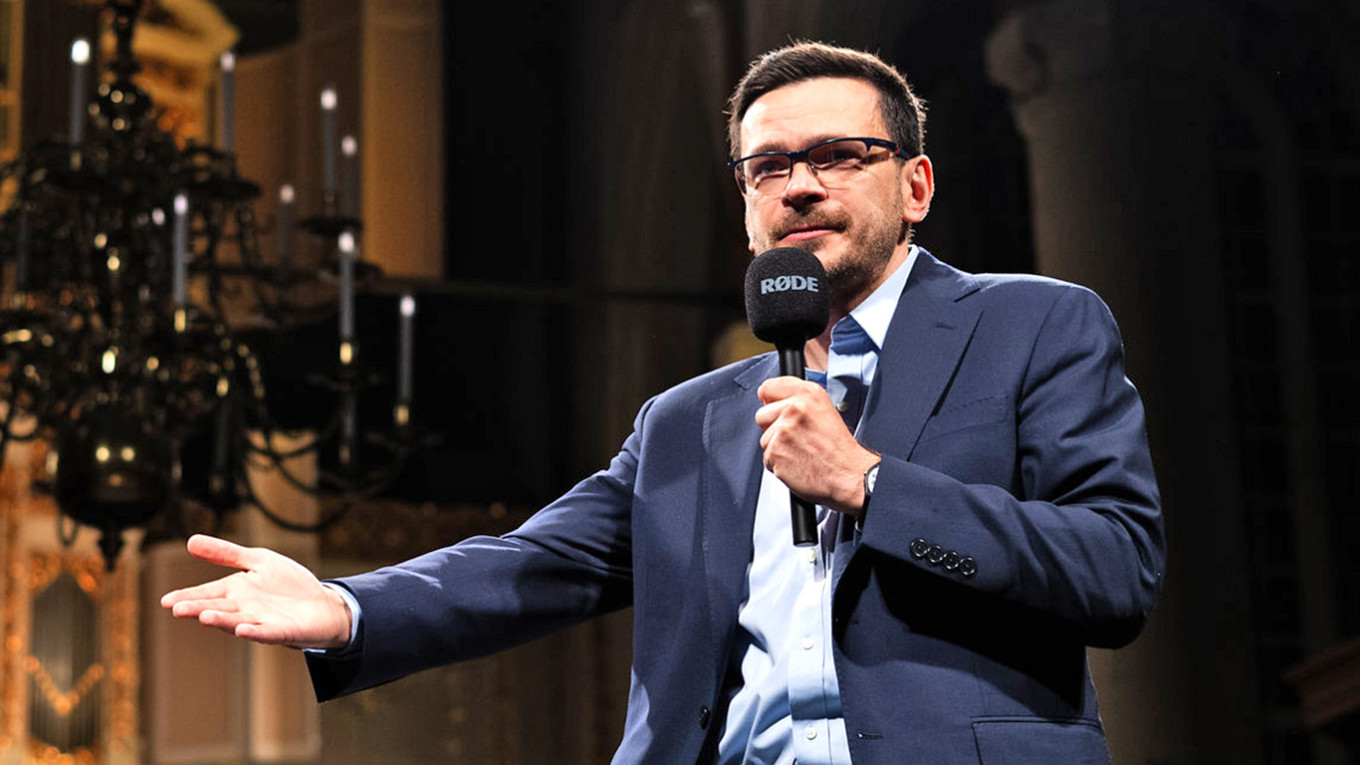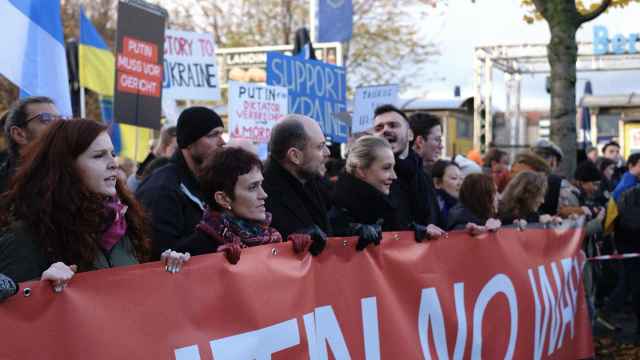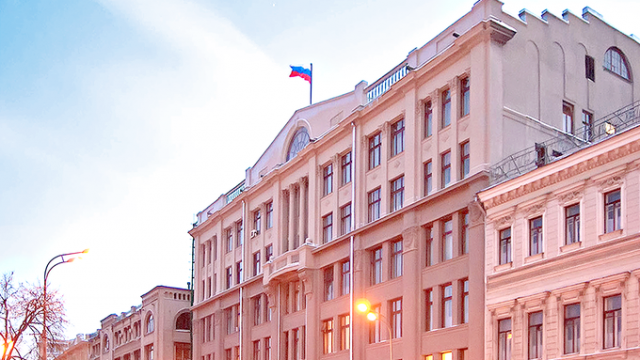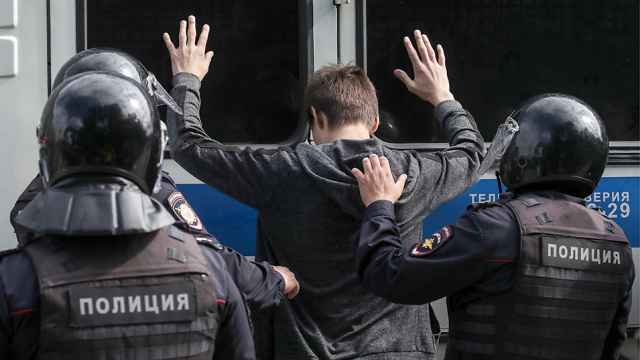Читайте русскую версию здесь.
Ilya Yashin, a Moscow opposition deputy and ally of late politician Alexei Navalny, was one of 16 prisoners freed by Russia in a historic exchange with the West on Aug. 1. He had been serving an 8.5-year sentence for denouncing the invasion of Ukraine.
On Nov. 17, Yashin, Yulia Navalnaya and Vladimir Kara-Murza will lead a protest in Berlin calling for Russian troops to withdraw from Ukraine, for Putin to be tried as a war criminal and for the release of political prisoners.
The Moscow Times spoke to Yashin about working in exile, the election of Donald Trump, Russia's future after Putin and how he reaches Russians inside Russia with his message.
This interview has been edited for length and clarity.
The Moscow Times: You are preparing to hold a rally in Berlin. Judging by comments on the internet, even opposition-minded Russians are already very burned out and desperate and are becoming more critical. Should a politician react to this, or should he stay cheerful no matter what?
Ilya Yashin: I don't think you should let comments on the internet guide you. They are always more depressing than reality. I judge the people’s mood not only by comments on Twitter, but also by meetings that I have held across Europe. … I don't feel like people are completely burned out. On the contrary, I see that there is a demand to come together, to participate in the anti-war resistance, to do something useful.
Yes, it is clear that there are problems. After almost three years of war, people are tired and there is not much good news. But I would not over-dramatize it.
MT: So, the march is intended to encourage people who are tired?
IY: To inspire. Because nothing energizes people like having a lot of like-minded individuals around. Again, I see it in my meetings. People leave with fire in their eyes, not only because of what I tell them, but because they see people with similar views around them. They are talking and getting to know each other and seeing that they are not alone. …
Another idea behind the march is that we still, it seems to me, need to unite political forces. We decided to formulate a few theses around which we can rally a lot of people. We succinctly and clearly formulated our political demands: the withdrawal of troops from Ukraine, the resignation of Vladimir Putin and his trial as a war criminal and the release of political prisoners.
Finally, the third idea is to show solidarity to our fellow citizens in Russia who are disenfranchised. We want to be a voice for them. We want to say what they’ve been imprisoned for and what they are forbidden from saying in Russia.
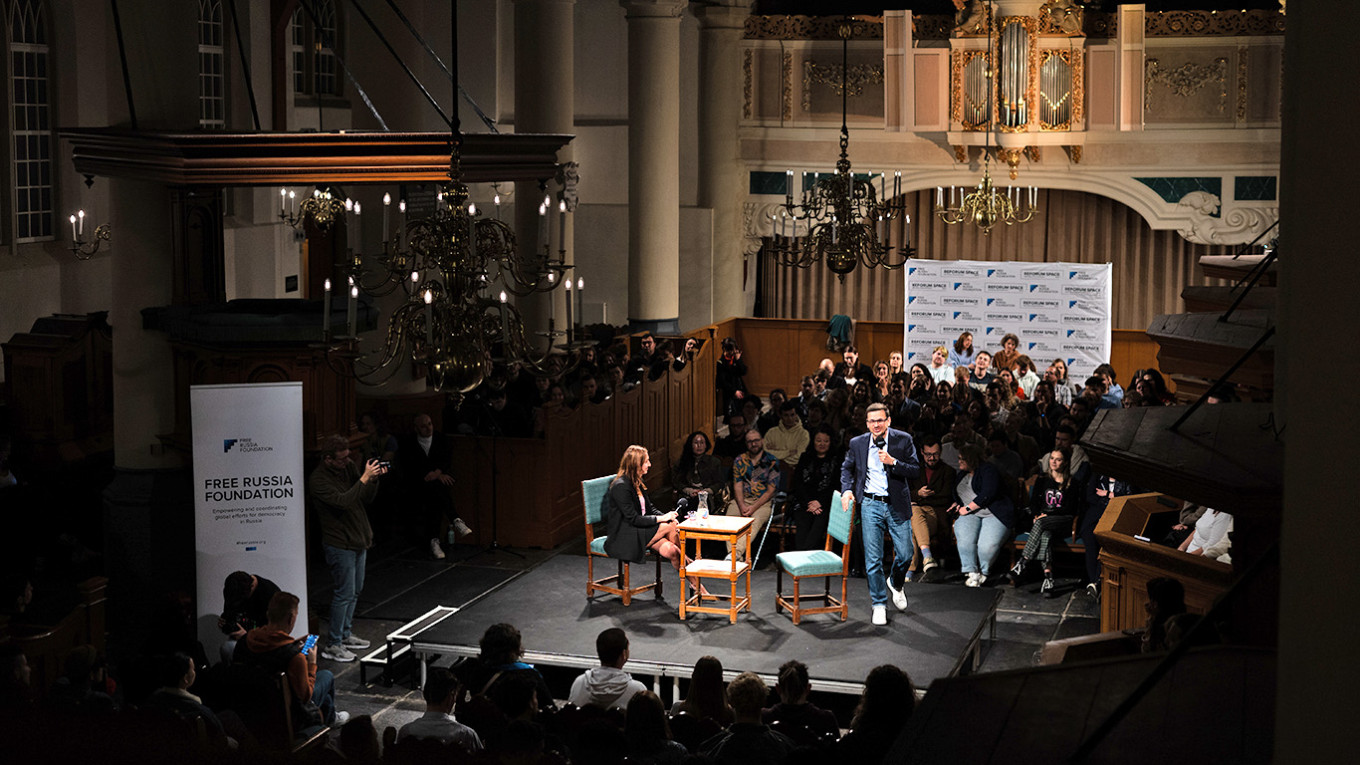
MT: There are several possible scenarios for the future that I want to ask you about. First, what you yourself will do, and second, what advice you would give to Russians in Russia and abroad.
IY: I ‘love scenarios.’ I think it's all guessing, pardon me, by reading coffee grounds. No one knows what lies ahead. Life has taught us that no forecasts, no analytics work in reality. You just have to do what you have to do.
My task is to convince people in Russia that this war is not only destroying Ukraine, but is also harmful for our country. This war is isolating our country, turning it into a gas station for China. It is taking a huge number of human lives. It’s hitting the economy, it’s creating a lot of social problems. My job is to explain to people, literally by counting on my fingers, how this war is destroying the future of an entire generation. … In my 41 years of life, I think I have learned to focus on what matters. So I don't think about hypotheticals. I'm not an analyst. I don't guess what the future will be, I try to shape it.
MT: Still, there are things that it makes sense to prepare for. For example, if Putin were to die tomorrow, it would not be immediately clear whether the war would end or whether repressive laws would be abolished. What will you do then and what will you call on your supporters to do?
IY: If Vladimir Putin disappears somewhere, it is obvious that there will be a power struggle in Russia. It will be a difficult one, and it may be bloody, but there will definitely be a space for political competition. I am absolutely sure that the democratic movement will be a part of this struggle, because it has a significant number of supporters in Russia, especially in big cities — no matter what anyone says or what the propaganda tries to convince us of — and it has chances to win this struggle. Therefore, if Putin goes away, we will fight for power.
MT: Will you immediately go back to Russia?
IY: Everything I am doing is aimed at returning. All my thoughts are associated with returning. I understand that it is impossible to change Russia from the outside. That’s why, for the three months that I've been free, I've been thinking about how to create a political opportunity for me to return to Russia — preferably not to go to prison, but to engage in independent politics. It’s not quite clear how yet. Although I have some thoughts. As soon as I have the opportunity to be in my own country, I will use this opportunity immediately.
MT: At what point will you tell your supporters: ‘Let's go home’?
IY: I understand your reflections about the future, but unfortunately, I am not Vanga [a Bulgarian mystic who claimed to be able to see the future], and I am afraid that I am unlikely to be able to give an answer that will fully satisfy you. Because, unfortunately, I have no ability to look into the future.
One thing I can say is that as soon as there is an opportunity to go back, I don't think I will tell you, ‘Let's go’ — I will simply say that I am going back, and it is up to you to decide how you will act.
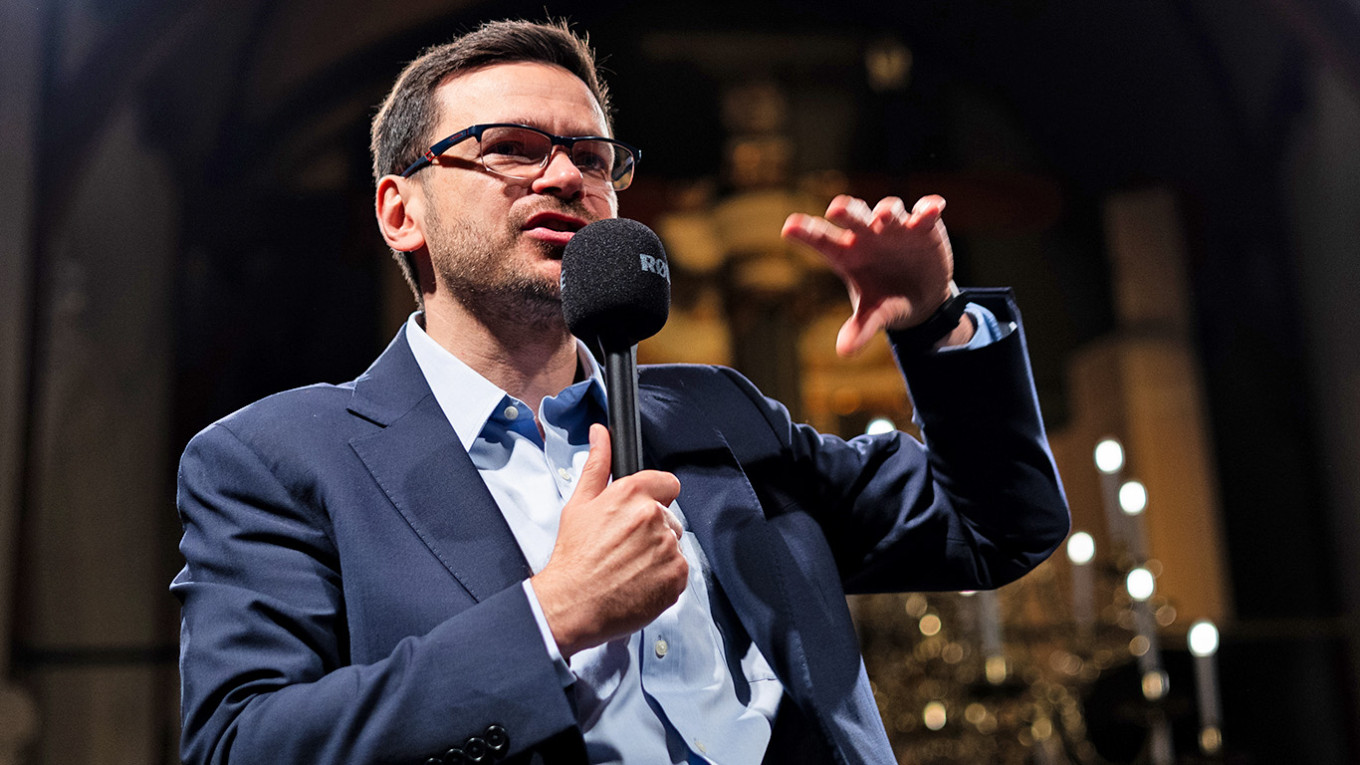
MT: Is it possible or even necessary to unite the Russian opposition, given that everyone is quarreling with everyone else? Do you have a position on the conflicts between FBK and [Maxim] Katz over Probiznesbank and FBK’s accusations against [Leonid] Nevzlin? And how important is that at this point?
IY: Frankly speaking, I haven't watched any of these so-called investigations or the responses to them. … I am interested in how to get [political prisoner] Alexei Gorinov out of jail, not in what [opposition figures accuse each other of].
As for uniting the opposition, it is clear that the conflicts run so deep and, unfortunately, are not so much political as personal, that it is unlikely that it will be possible to convince everyone that we should all embrace each other and work together.
MT: How will Donald Trump's victory affect us?
IY: In the United States, not as much depends on the personality of the president as, for example, in Russia. There are institutions so Trump won't be able to do whatever he wants. …
If we’re talking specifically about Ukraine, I think he will look for some unconventional solutions. Such that he would look like a winner and triumphant. I doubt that he will surrender Ukraine to Putin — everyone would see this as a strategic defeat not only for the West, but also for him personally. Everyone would compare him to Biden, who withdrew from Afghanistan. I think he understands this very well. But in general, of course, the entire Western system will face a serious stress test, because Trump is clearly determined to shake up the existing international institutions in the Western world.
MT: A lot of what is happening right now feels apocalyptic: Putin, Trump, war in Ukraine, right-wing politicians winning in Europe. What is the job of a democratic politician in this situation?
IY: Our job is to calm you down so that you don't overdramatize what is happening around you. America has already been tested by Trump once, and I think it will be tested again. Yeah, things happen. Sometimes not very nice, sometimes bloody, sometimes dramatic. I live in Germany now, for example. Eighty years ago, it was the capital of the Third Reich, where people were tortured, exterminated in gas chambers, killed, shot … And now it's one of the freest cities in the world, where you can do what you want and be who you want to be. And it's a great place to live.
MT: It’s more of a hope for our grandchildren than for us.
IY: How old are you?
MT: 32.
IY: And Putin is 70. He's not the future after all.
MT: After the prisoner swap, rights activists have noted a decrease in support for political prisoners remaining in Russia, because the high-profile names are free. If, let's say, there are more exchanges, Western countries are unlikely to agree to exchange ordinary Russians who are not politicians or activists. What should we do with these people?
IY: We are doing everything in our power to keep this interest alive. Every meeting with Western politicians and officials always starts with the topic of political prisoners and the need to organize new exchanges. For example, before my meeting with [French] President Macron, he was given a list of Russian political prisoners who need to be rescued because they are literally dying in prison.
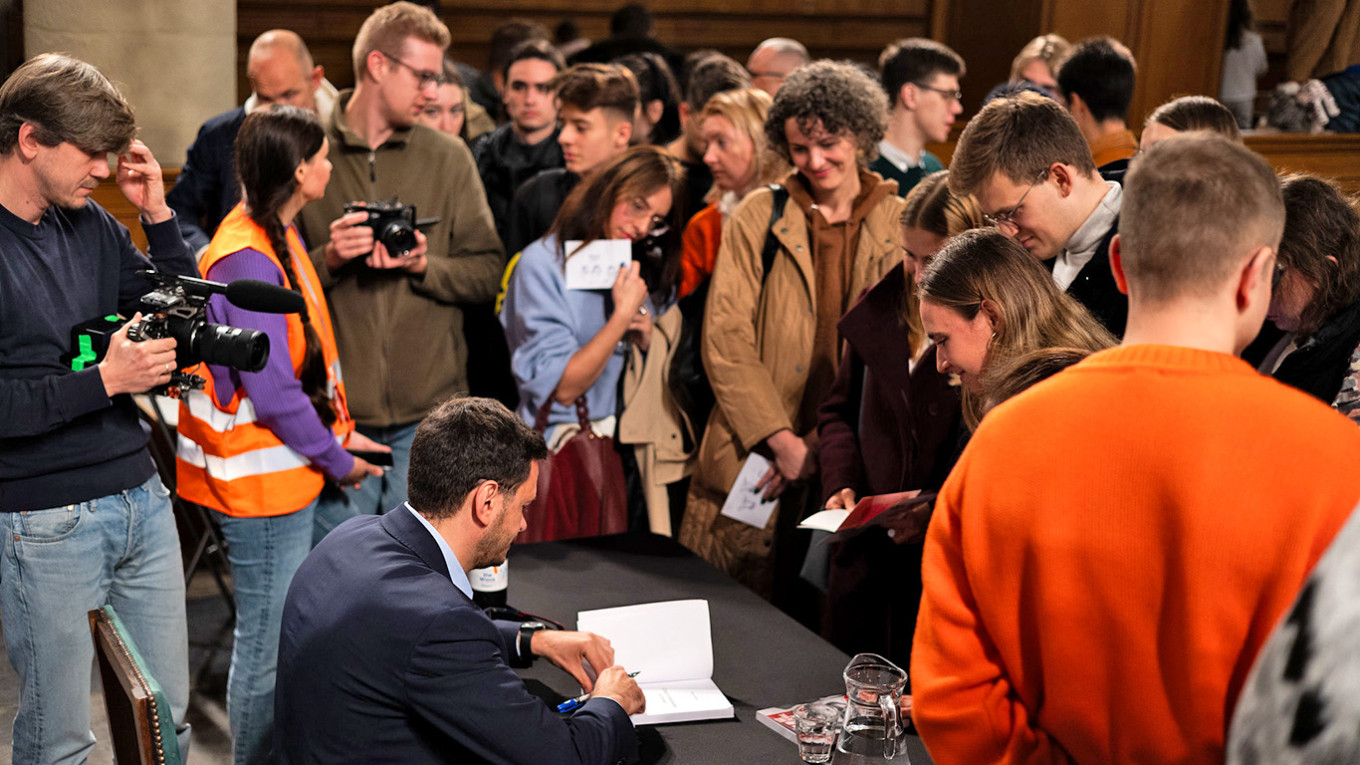
MT: What do you think about the view that Russia should be ‘decolonized’ after Putin? And about the movements in support of Indigenous peoples, which are very numerous in the emigre community — but as far as I know, most Russians who remain in Russia are furious at the very mention of it and see it as an attempt to ‘break the country apart.’
IY: It seems to me that the answer is on the surface: the compromise between these two seemingly polarized points of view is the real federalization of Russia. Not a declarative federalization, as it is now in the Constitution — when we are called the Russian Federation, but all decisions are de facto made in Moscow — but real federalization and the development of local self-government. I know what I am talking about, because I myself have worked at the municipal level. I understand how little authority there is and how little money there is at the local level.
‘The collapse of Russia’ is harmful, dangerous and unnecessary. But more powers, more funding, more opportunities for the regions — this is necessary. We need to respect the rights of the regions. We need to understand that people in Vladivostok, in Murmansk, in Komi, in Khabarovsk know how to organize their lives much better than officials in Moscow offices. Regional leaders should not be appointed from Moscow, and the system of relations between Moscow and the regions should change. …
By the way, people with this decolonial agenda came to my meetings in Vilnius and Warsaw. I tested what I’m telling you now in dialogue with these people, and I can say that our positions converged quite quickly.
MT: How do you stay informed about what Russians inside Russia are thinking?
IY: Well, first of all, look, I didn't leave that long ago. I was in Russia just three months ago. Secondly, a lot of my friends and a lot of like-minded people remain in Russia. My parents live in Russia. So I don't have the feeling that I have lost my emotional connection with my country. I think I know my country well. And I feel good about my people.
I realize, of course, that the longer one is in exile, the harder it is to maintain that emotional connection. But I can tell you sincerely that I do not feel like an emigrant.
MT: I also judge opinions inside Russia by my relatives, and they would be furious about literally everything we are talking about right now. If my mom were here...
IY: I think that if your mother were here, I would find a common language with her. ... It is clear that it is necessary to return to Russia, of course. So the global task is to find a way to return to Russia, to work in Russia. Without that, nothing will work. Because I can hardly convince your mom through an interview in The Moscow Times. Your mom has to be spoken to in Russia... I plan to do that.
MT: How do you keep believing that?
IY: On the one hand, I’m confident that I’m standing on the right side and doing a useful thing. On the other hand, I see a great need for people who are doing what I'm doing. It's empowering. It was also empowering when I was in prison, by the way. I received 30,000 letters in 25 months there — it helps add meaning to life.
A Message from The Moscow Times:
Dear readers,
We are facing unprecedented challenges. Russia's Prosecutor General's Office has designated The Moscow Times as an "undesirable" organization, criminalizing our work and putting our staff at risk of prosecution. This follows our earlier unjust labeling as a "foreign agent."
These actions are direct attempts to silence independent journalism in Russia. The authorities claim our work "discredits the decisions of the Russian leadership." We see things differently: we strive to provide accurate, unbiased reporting on Russia.
We, the journalists of The Moscow Times, refuse to be silenced. But to continue our work, we need your help.
Your support, no matter how small, makes a world of difference. If you can, please support us monthly starting from just $2. It's quick to set up, and every contribution makes a significant impact.
By supporting The Moscow Times, you're defending open, independent journalism in the face of repression. Thank you for standing with us.
Remind me later.


